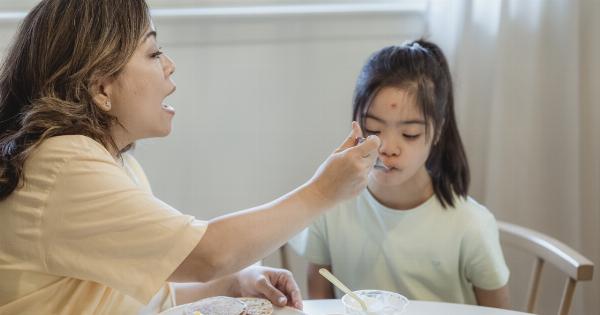Eating disorders are often associated with teens and young adults, but they can affect people of any age, including those in their 50s.
The physical changes and emotional stresses that can occur during this stage of life may trigger the onset of disordered eating. However, many people in their 50s may not realize they have an eating disorder, and their symptoms may go unnoticed by loved ones or medical professionals.
Types of Eating Disorders
There are several types of eating disorders that can affect people in their 50s, including:.
Anorexia Nervosa
Anorexia nervosa is characterized by an intense fear of gaining weight and a distorted body image. People with anorexia may restrict their calorie intake, engage in excessive exercise, or use other methods to lose weight.
Symptoms of anorexia can include extreme thinness, fatigue, dizziness, and hair loss.
Bulimia Nervosa
Bulimia nervosa is characterized by a cycle of binge eating and purging. People with bulimia may eat large amounts of food in a short period of time and then engage in behaviors such as vomiting or using laxatives to get rid of the calories.
Symptoms of bulimia can include weight fluctuations, dehydration, and dental problems.
Binge Eating Disorder
Binge eating disorder is characterized by recurrent episodes of overeating, without compensatory behaviors such as purging.
People with binge eating disorder may feel out of control during these episodes and may eat when they are not hungry or until they feel uncomfortably full. Symptoms of binge eating disorder can include weight gain, high blood pressure, and feelings of shame or guilt.
Signs of Eating Disorders in 50s
Like other age groups, people in their 50s with eating disorders may exhibit a range of physical and emotional symptoms. Some common signs of eating disorders in this age group include:.
Physical Symptoms
- Rapid weight loss or gain
- Changes in body shape or size
- Fainting or dizziness
- Irregular periods or fertility issues
- Low energy or fatigue
- Constipation or other digestive issues
Emotional Symptoms
- Obsessing over food or weight
- Intense dissatisfaction with one’s body
- Avoiding social situations where food is involved
- Anxious or depressed feelings
- Mood swings or irritability
- Difficulty sleeping
Getting Help
If you or a loved one in their 50s is experiencing symptoms of an eating disorder, it is important to seek professional help.
Eating disorders are serious mental health conditions and can lead to long-term physical and emotional consequences if left untreated. Treatment for eating disorders often includes a combination of therapy, nutritional counseling, and medication if needed.
Your primary care physician or a mental health professional can help diagnose an eating disorder and refer you to appropriate treatment options.
Eating disorders may also be treated in inpatient or outpatient settings, depending on the severity of the disorder.






























